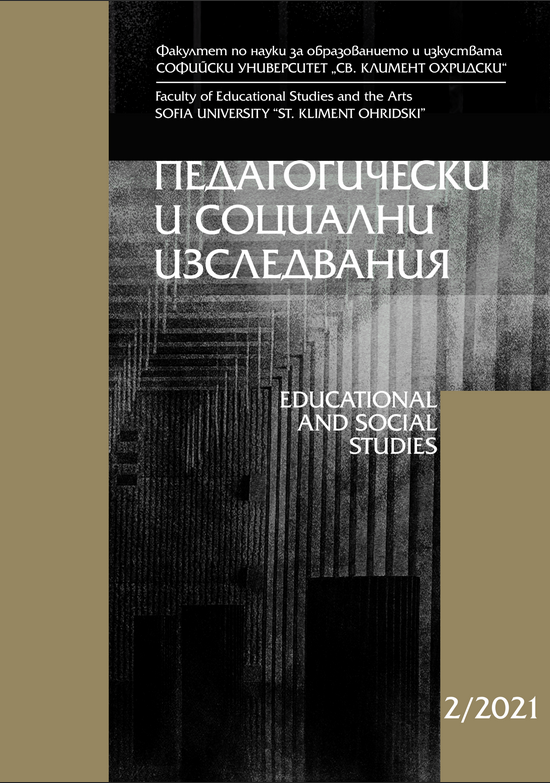Mathematical problem solving in primary school – an experiment in two classrooms
Keywords:
mathematics education, primary school, problem solving, problem-based learning, problem approach, problem-based approachAbstract
The problem-based learning is not popular in teaching mathematics in primary schools in Bulgaria. In the traditional method, the
problem situation is used to introduce new knowledge, which the teacher demonstrates afterwards. Confronting students with learning situations, in which they explore the possible solutions strategies individually or in small groups, is a powerful tool for enhancing the quality of the educational process. In view the advantages and disadvantages of this method to be studied, an experiment was conducted in two classes, in a traditional and in an alternative school, at the end of the 2020/2021 school year. The results support the idea of looking for opportunities research in this direction to be expanded and pedagogical models, including problem solving as an integral part of the teaching and learning process, to be suggested.
References:
Alekieva, L (2020). STEM in the context of Bulgarian national standards in mathematics education in primary school, Education and arts: Traditions and perspectives. https://fnoi.uni-sofia.bg/wp-content/uploads/2020/11/bizhkov.pdf
Atanasova, N. (2014). Problem based learning in the school – archaism or innovation. In: Bulgarian teacher, №2, р.45 – 54, ISSN 1314–9482; Education and development, ISSN 2603–3577.
Desev, L. (2018). Psychology Dictionary”. Sofia: Bulgarika.
Mincheva, R., Charkova, P., Ivanova., St. (2017). Problem-productive strategy and variations for implementing in the mathematics education in 1-4 grades. In: Student almanac. Vol.4. Stara Zagora: Pedagogical Faculty – Tracian University.
Nad 49 000 uchenitsi sa zayavili zhelanie da se yavyat na DZI prez may (2021). Ministry of Education and Scienceq, April 2. https://mon.bg/bg/news/4119
Nowakowa, Z. (2004). Methodology of teaching mathematics in primary years. Sofia: Veda Slovena.
Polya, D. (1972) How to solve problems. Sofia: Narodna prosveta.
Strategia za uchene prez tselia zhivot. https://eacea.ec.europa.eu/national-policies/eurydice/content/lifelong-learning-strategy-12_bg.
Rezultati ot uchastieto na balgarskite uchenitsi ot 4. klas v Mezhdunarodnoto izsledvane na umeniyata po matematika i prirodni nauki TIMSS (2020). Rezultati ot Mezhdunarodnoto izsledvane TIMSS 2019, Tsentar za otsenyavane v preduchilishtnoto i uchilishtnoto obrazovanie, December 9. https://copuo.bg/upload/docs/2020-12/TIMSS2019_resultati.pdf.
Izsledovatelska programa i kontseptno-bazirano uchene na International Baccalaureate, Fondatsiya za obrazovatelna transformatsiya. https://transform.bg.
Dewey, Jhon., How We Think. Dover Publications; Revised ed. edition (July 10, 1997).
International Baccalaureate https://www.ibo.org/.
NCTM (2003). Teaching Mathematics Through Problem Solving=Prekindergarden - Grade 6.
PISA (2012) Results. Creative Problem Solving. Student`s Skills In Tackilng Real-Life Problems. Volume 5.
UN General Assembly, Transforming our world : the 2030 Agenda for Sustainable Development, 21 October 2015, A/RES/70/1, https://www.refworld.org/docid/57b6e3e44.html.





